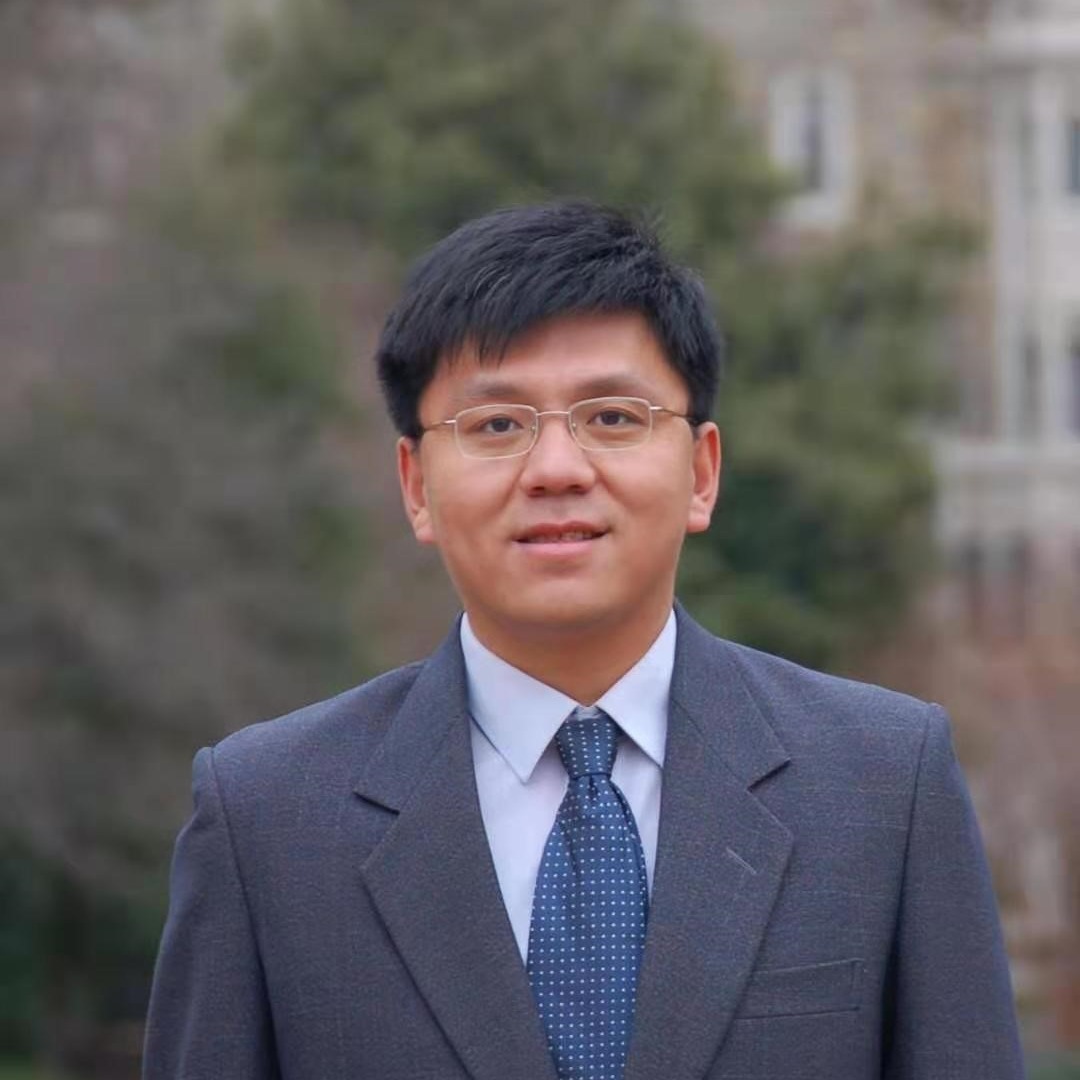Areas of Focus
- GPCR ligand discovery and interaction mechanisms
- GPCR roles in metabolic diseases like diabetes, reproduction, hearing, kidney diseases, and bone development
- Pharmacological theories of GPCR preferential signaling
- Transmembrane signaling in tissue reconstitution
Work Experience
- 2007-2011: Postdoctoral Researcher, Duke University
- Current: Professor at Peking University, Director of the Department of Biophysics
Academic Background & Achievements
- 1993-1998: Bachelor in Biology and Computer Science, University of Science and Technology of China
- 1998-2001: Master's Degree, University of Science and Technology of China
- 2001-2007: PhD, Albert Einstein College of Medicine, Supervisor: Zhong-yin Zhang
- Postdoctoral Researcher at Duke University, Supervisors: Robert J. Lefkowitz, James B.
Publications
- Structural and signaling mechanism of TAAR1 enabled preferential agonist design, Sun JP et al., 2023
- Ligand recognition and G-protein coupling of trace amine receptor TAAR1, Sun JP et al., 2023
- Structural basis of amine odorant perception by a mammal olfactory receptor, Sun JP et al., 2023
- Unsaturated bond recognition leads to biased signal in a fatty acid receptor, Sun JP et al., 2023
- Structural basis for the tethered peptide activation of adhesion GPCRs, Sun JP et al., 2022
- Structure, function and pharmacology of human itch receptor complexes, Sun JP et al., 2021
- Structures of the glucocorticoid-bound adhesion receptor GPR97-Go complex, Sun JP et al., 2021
- Tethered peptide activation mechanism of the adhesion GPCRs ADGRG2 and ADGRG4, Sun JP et al., 2022
- Structural basis of GPBAR activation and bile acid recognition, Sun JP et al., 2020
- Ligand recognition and allosteric regulation of DRD1-Gs signaling complexes, Sun JP et al., 2021
- Cryo-EM structure of the X-linked acrogigantism-related orphan GPR101-Gs complex enabled identification of ligands with rejuvenating potential, Sun JP et al., 2023
- Structures of the ADGRG2-Gs complex in apo and ligand-bound forms, Sun JP et al., 2022
- Allosteric mechanisms underlie GPCR signaling to SH3-domain proteins through arrestin, Sun JP et al., 2018
- Autonomous sensing of the insulin peptide by an olfactory G protein-coupled receptor modulates glucose metabolism, Sun JP et al., 2022
- Functional screening and rational design of compounds targeting GPR132 to treat diabetes, Sun JP et al., 2023
- Nidogen-2 is a Novel Endogenous Ligand of LGR4 to Inhibit Vascular Calcification, Sun JP et al., 2022
- Progesterone activates GPR126 to promote breast cancer development via the Gi pathway, Sun JP et al., 2022
- Single hormone or synthetic agonist induces Gs/Gi coupling selectivity of EP receptors via distinct binding modes and propagating paths, Sun JP et al., 2023
- Activation of PTH1R alleviates epididymitis and orchitis through Gq and β-arrestin-1 pathways, Sun JP et al., 2021
- Scaffolding mechanism of arrestin-2 in the cRaf/MEK1/ERK signaling cascade, Sun JP et al., 2021
- Structural basis and molecular mechanism of biased GPBAR signaling in regulating NSCLC cell growth via YAP activity, Sun JP et al., 2022
- Cartilage oligomeric matrix protein is an endogenous β-arrestin-2-selective allosteric modulator of AT1 receptor counteracting vascular injury, Sun JP et al., 2021
- The catalytic region and PEST domain of PTPN18 distinctly regulate the HER2 phosphorylation and ubiquitination barcodes, Sun JP et al., 2014
- Ligand recognition and G protein coupling of the human itch receptor MRGPRX1, Sun JP et al., 2023
- Structural studies of phosphorylation-dependent interactions between the V2R receptor and arrestin-2, Sun JP et al., 2021
- DeSiphering receptor core-induced and ligand-dependent conformational changes in arrestin via genetic encoded trimethylsilyl 1H-NMR probe, Sun JP et al., 2020
- Homocysteine directly interacts and activates the angiotensin II type I receptor to aggravate vascular injury, Sun JP et al., 2018
- Arrestin biased GPCR agonism induces acute catecholamine secretion through TRPC3 coupling, Sun JP et al., 2017
- Phospho-selective mechanisms of arrestin conformations and functions revealed by unnatural amino acid incorporation and 19F-NMR, Sun JP et al., 2015
- Activation pathway of a G protein-coupled receptor uncovers conformational intermediates as targets for allosteric drug design, Sun JP et al., 2021
- Ligand recognition, unconventional activation and G protein coupling of the prostaglandin E2 receptor 2 (EP2), Sun JP et al., 2021
- Deafness-Associated ADGRV1 Mutation Impairs USH2A Stability through Improper Phosphorylation of WHRN and WDSUB1 Recruitment, Sun JP et al., 2023
- In vitro expansion of pancreatic islet clusters facilitated by hormones and chemicals, Sun JP et al., 2020
- Construction of an alkaline phosphatase-specific two-photon probe and its imaging application in living cells and tissues, Sun JP et al., 2017
Awards
- 2018: National Outstanding Youth Fund (Pharmacology)
- 2023: New Keystone Project Researcher
- 2022: Tan Jiazhen Life Science Innovation Award
- 2022: Second Prize of Chinese Medical Science and Technology Award (Medical Science and Technology)
- 2023: Third National Innovation Competition Award





